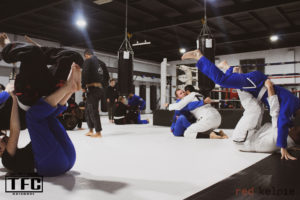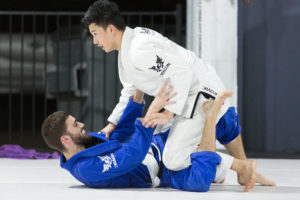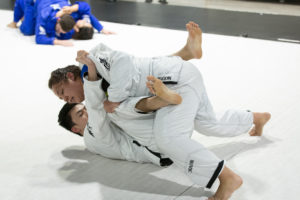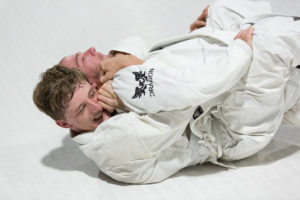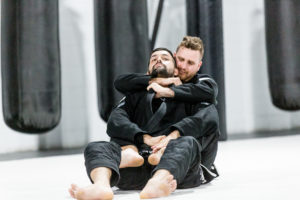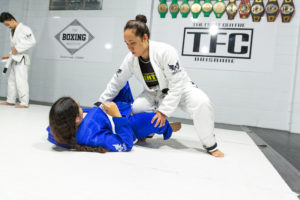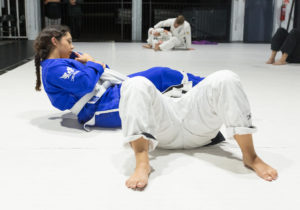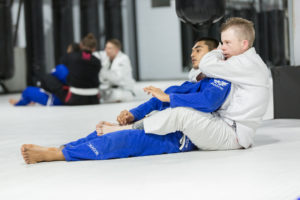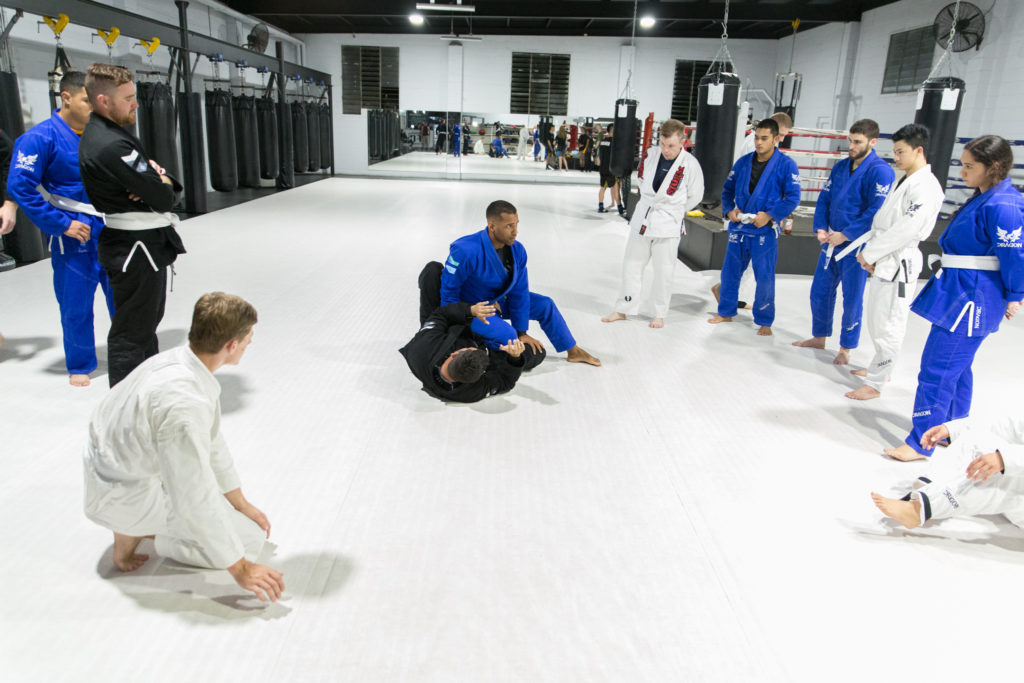The points system used in most BJJ competitions (everything other than submission-only). It has been a topic of contention for many athletes over the years and continues to be a hotly-debated one. It is often a source of much controversy in the BJJ world.
Let’s take a little journey together. Exploring the positives and negatives that are attached with the BJJ points system (in that order). Buckle up, class is in session.
-
0 Laying the foundation
For athletes who have yet to compete, it’s understandable if you don’t know how the points system works.. Below you will find a simple list of what positions/actions earn you points in a standard BJJ competition. Just like any sport, the goal is to score more points than your opponent.
The Point System
4 points – Rear mount (taking the back) / Mount
3 points – Passing the guard
2 points – Sweep (from guard) / Takedown / Knee-on-belly -
1 Time-efficient
Pitting two BJJ players against each other to decide which one is better has one glaring problem, time. Because of the tournament nature of many BJJ competitions they can take part over a few days. The points system provides a method to judge who the better BJJ player is over a fairly short period of time. Perfect? No. Necessary? Maybe.
-
2 Develops combat mindset
Control is a crucial part of combat. The person in control has many more options available to them regarding attack and defence compared to their opponent. So in a sense, the points system is an great way to prime competitors to seek out better positions. This will aid them not only in competition but if they find themselves in a ‘real-world’ combat scenario too.
A simple but clear example of this would be moving from full guard to side guard. As a skilled BJJ player, you will have the tools to execute this. You’ll also automatically be making decisions to advance the position. Learning to score the points in competition may be the deciding factor that allows you to neutralize a potentially dangerous situation.
-
3 Not an accurate simulation
BJJ’s point scoring system encourages a ‘point scoring’ strategic within the rules. Especially when your opponent is likely to beat you unless you play a very careful human chess match. As a sport there is nothing wrong with this, however, it does run the risk of creating unrealistic expectations.
Your opponent may not earn points in your full guard and it may give you time to decide your next attack. In a real street fight scenario however, it is less than ideal to expose yourself to strikes by stalling in guard.
-
4 Playing the system
Many would argue that playing the point system is the right way to go into a tournament. However, this style of approach won’t necessarily show who has a more effective grasp of the discipline overall. If you’re approaching BJJ from a sports stand point, it makes complete sense. But, if you’re looking to find out who is genuinely more capable of handling themselves in a combat situation, the results may be misleading.
-
5 Leaving it to the judges
If neither opponent does enough to secure an obvious victory, the judges will make a decision. This obviously opens up the opportunity for human error to take place regarding deciding who was the ‘better’ practitioner. In most cases, the judges will make the right call. However, not always.
-
6 False sense of superiority
Being able to gain points with ease is a good indicator of someone’s skill, but if BJJ is supposed to be a ‘fight simulation’ it really is far less important than the ability to submit and finish the fight. If you cannot injure the person to the point of them being unable to continue, the opponent will still be dangerous. It’s possible that as soon as you get up to try and leave the scene the opponent may follow uninjured and and try attacking you once again.
The positive about the points system is that all points are meaningless once a submission is locked in. A person can be losing the entire match but after 5 minutes land a submission and win. Very much like a self defence situation.
In this instance we tip our hat toward the points system, allowing fights to be finished in less than 10 minutes giving a clear winner in a tournament scenario.
-
7 Does the system need an overhaul
No point system is perfect, the one used to score BJJ competitions is no different. Some argue that the current system is simply not enough to determine who is the most well-equipped martial artist. Generally speaking, those that hold this point of view tend to lean towards submission-only events. Lucky for them, these events are slowly but surely starting to grow in number.
-
8 Conclusion
Competition plays a huge role in BJJ. Although far from perfect, the current points system does a pretty good job of highlighting who the better competitor is. For the discipline to continue to grow at the speed that it has been, efficiency is essential. In this way, the points system allows for BJJ tournaments to be time-efficient.
There are athletes that feel the standard competitions are too sport-based and don’t indicate the better martial artist. Fortunately there are alternative rulesets in the ever-evolving BJJ world with opportunities to compete in submission only events.

